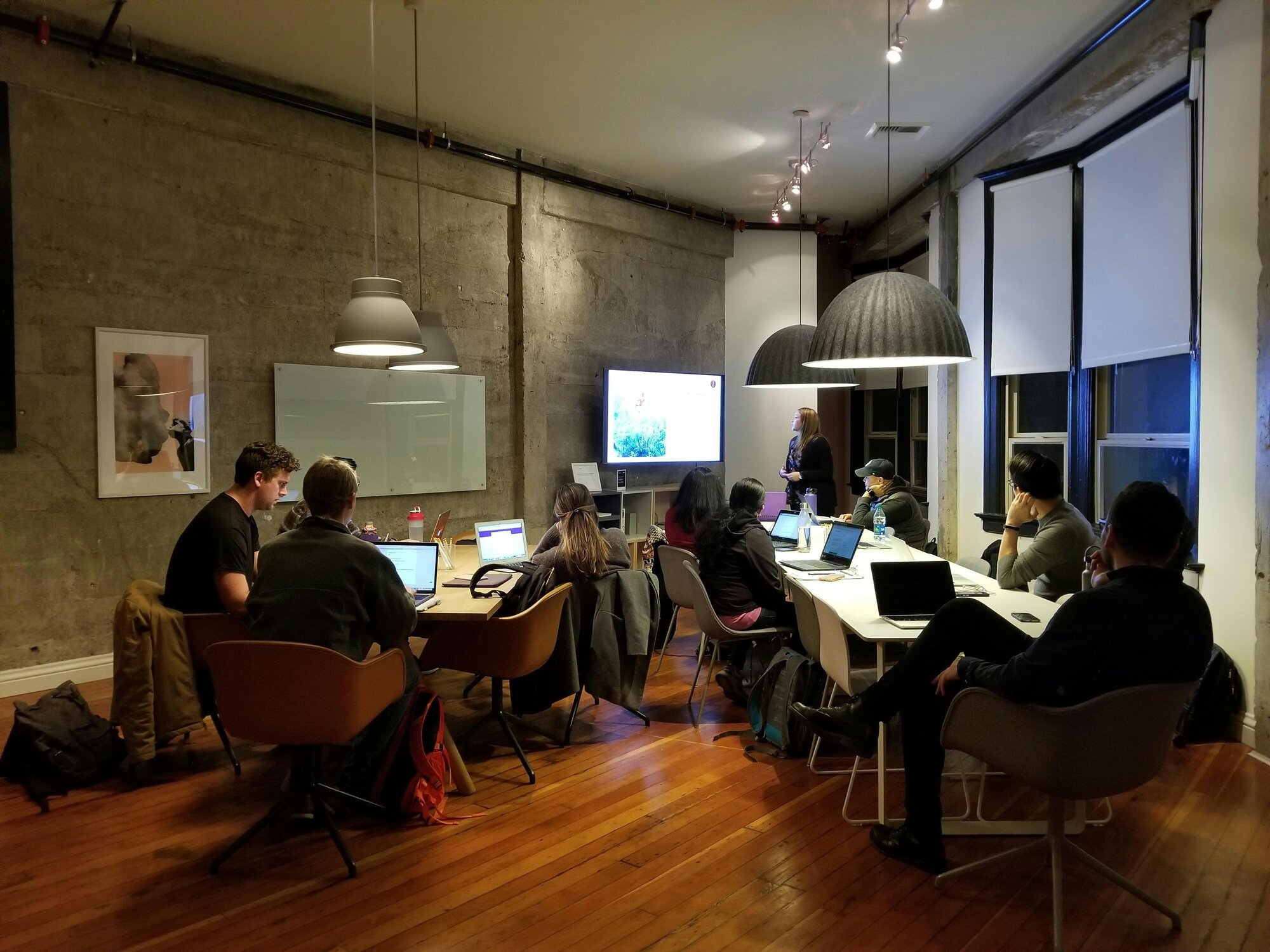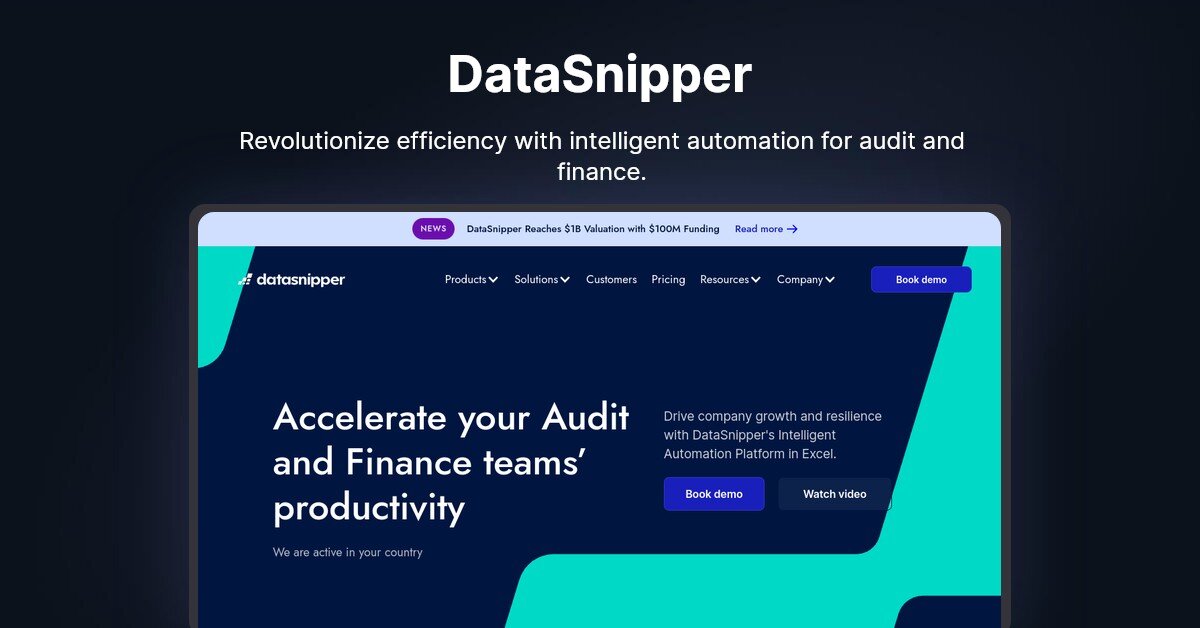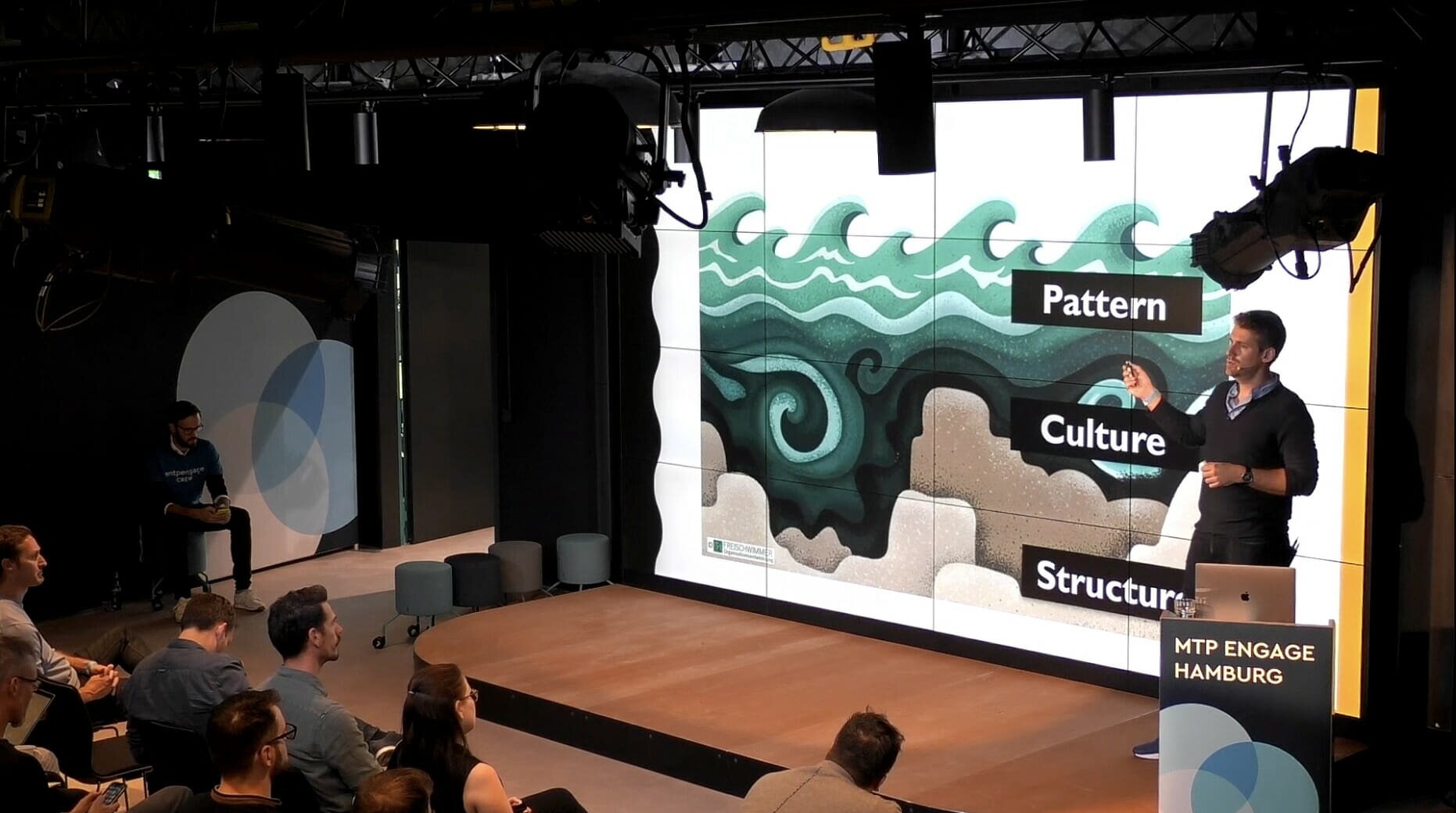In the second keynote of the day from #mtpcon London 2023, Nilan Peiris, Chief Product Officer at Wise, revisits some of the bold statements he’s made to Mind the Product audiences in the past and assesses whether they have held true as the company has grown. Watch the video in full, or read on for highlights from his talk.
Key takeaways:
- Scaling through word of mouth is possible in big companies
- But you need to build something that’s 10x better than anything else and you need mission-driven marketing to achieve it
- Autonomous teams need tweaking to scale
- Customers don’t care about how your business is run, they only care about the speed with which you achieve your mission
Nilan has been at international money transfer business Wise for about 10 years. He starts by explaining the problem that Wise was founded to solve, and says that a decade later, Wise has built out the infrastructure for the world’s money and solved the problem of moving money across borders.
Eight years ago, Nilan spoke on the Mind the Product stage and made a couple of bold statements. He said that 70% of Wise’ users found out about the company from a friend, and that Wise worked in autonomous independent teams with a focus on KPIs that make a difference to customers and drive the company’s growth.
He then examines how these statements have scaled as the company has grown in the last decade.
Scaling through word of mouth
In Q3 of 2013, 40,000 customers joined Wise, and 70% of them found out about Wise from a friend.
In Q3 2023, 63% of customers found out about Wise from a friend. As Nilan says: “Almost! Still pretty damn good.” A million customers joined Wise in Q3 2023. Wise has gone from moving £250 million a year to moving over £120 billion a year. Crazy growth, says Nilan, and 4% of all the world’s money is moved on the Wise platform. It shows word of mouth can scale to a huge company.
Scaling through word of mouth starts with a simple question that Nilan recommends everyone ask: What would it take for customers to recommend your product? How good does it need to be?
You work out the answer by asking your customers – it’s the NPS question. Nilan says that Wise found that people don’t recommend that much when they give you a 1 to 5, but if that moves from 5 to 6, the number of people they tell doubles. If it moves from 6 to 8, then the number of people they tell doubles again.
How do you grow NPS? By reading customer feedback. Nilan says that Wise’s customers asked the company to make the product faster, cheaper and easier to use. These three things are generally true for consumer products. You can measure them, and Wise found that to achieve advocacy its products needed to be 10 times better than the alternative.
But this is hard. You have to create an experience that your customers previously didn’t know was possible. If you’re building something that’s 10 times better than anything else, says Nilan, by definition you’re building something that didn’t exist.”If you're not in that state of existential crisis, you’re not trying hard enough,” he says.
It’s not the entire story. Nilan says that when customers recommended on price, speed and ease of use, Wise found that they also recommended the business for its mission – “money without borders, instant, convenient, and eventually free”. “We were a bit shocked when we stumbled upon this,” he says, “we got this insight that our mission resonated with a subset of our customer base and maybe we could get them to help us achieve it.” Through building a 10x better product and mission-driven marketing you can scale your business through word of mouth, he says.
We work in autonomous teams
Eight years ago, citing Wise, Spotify and Airbnb, Nilan said the best companies run in autonomous teams.
Today decision-making at Airbnb is focused at the top, Spotify has ditched the Spotify model, and Wise doesn’t run autonomous teams.
“I don’t use the word autonomous anymore,” says Nilan. “It’s very hard to interpret. We do work, and continue to work, in highly empowered teams at Wise.” And over the last decade, Wise has found the limits on doing so.
There are real challenges to highly empowered teams. How do you set and keep budgets, do cost control, maintain consistent quality? Wise is a publicly quoted company in a highly regulated industry.
What has worked well at Wise? Nilan tells the story of Wise’s Singapore licence and how the product team was able to create a huge amount of value for its customers in Singapore and launch a unique product. Wise’s multi-currency account came about from the insights of one of its product managers who realised that small businesses not only found it hard to send money internationally, they also found it was hard to receive.
“Empowering teams has enabled us to move fast,” says Nilan, “our strategy isn’t set top-town, it’s set by the teams closest to the customers.”
What hasn’t worked? In 2013 Wise had 63 people, now it has 5,000 people. Accountability has had to change.
Maintaining quality is also difficult in a distributed organisation. Says Nilan: “I don’t think my teams need to hear my opinion on what quality is, but I learned that in me not setting the bar on what good quality is, no one set the bar on what good quality is.” Nilan explains the initiative – “Walk the product” – that Wise has started to fix this. Communicating strategy is also harder in a big company, both internally and externally. Wise is still developing this, Nilan says.
Wrapping up, he says: “Lots has changed over the last 10 years, plenty has stayed the same. Word of mouth is a channel that all of you can use to scale your products to millions of customers. Autonomous teams need tweaking to scale… our customers don’t care about autonomous teams, they don’t care how we run. They only care about the speed with which we achieve our mission… and as long as we stay true to achieving our mission we will succeed
Want to turn the learning from this talk into action?
Our exciting #mtpcon London 2023 Keynote Kit brings you all of the insights from our London keynote talks plus additional helpful discussion points and thought starters so you can easily translate the insights into actions – perfect for making effective improvements to your role, team, and product. Plus, get an email notification when each talk is published! Sign up now.






